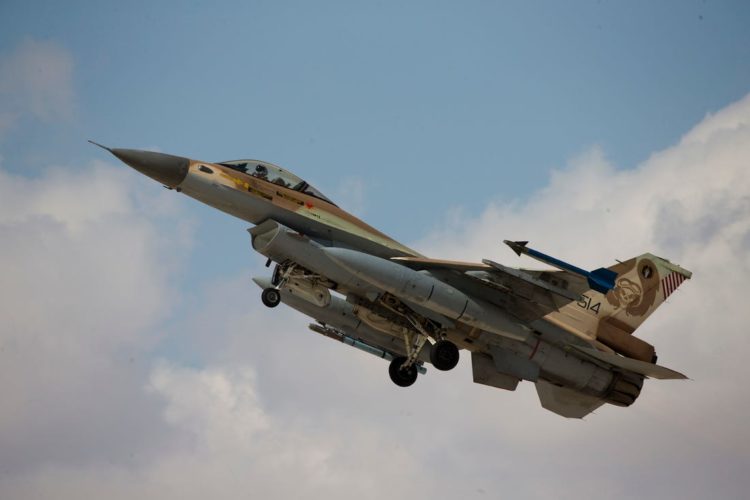Despite the Biden administration’s decision to renegotiate with Iran on the Joint Comprehensive Plan of Action (JCPOA), known as the Iran nuclear deal, the government of Israel is adamant that the JCPOA only delays the Iranians from building nuclear weapons. Israel won’t allow that to happen as per its “Begin Doctrine” according to which it will strike preventively against any nuclear or weapons of mass destruction (WMD) capabilities its enemies possess.
The U.S. withdrew from JCPOA under the Trump administration.
The Israelis will act alone if necessary and are preparing to do so. They have made their intentions publicly known. Israeli Defense Forces (IDF) Chief of Staff Lt. Gen. Aviv Kochavi’s warning against a return to the 2015 nuclear deal and his declaration that he had ordered IDF to present additional plans for an offensive action to prevent the Iranians from acquiring a nuclear weapon is not a threat to be dismissed.
The Iranians announced in January that they had ordered the enrichment of uranium to 20 percent — far beyond the 3.5 percent permitted under the JCPOA and just a small technical step away from the 90 percent needed for a nuclear weapon. Iran also said it was beginning research into uranium metal, a material that European powers stated had “no credible civilian use.”
“The production of uranium metal has potentially grave military implications,” the foreign ministers of Britain, France, and Germany said in a joint statement earlier this month. However, the Iranian government insists that it has no intentions of building a nuclear weapon, despite evidence to the contrary.
Although the Israelis rarely comment on actions they conduct against Iranian presence in Syria, LTG Kochavi admitted to hundreds of actions. He recently said Israel had struck more than 500 targets in 2020 “on all fronts in addition to multiple clandestine missions.”
The Iranians are entrenching themselves in Syria within the Assad regime as part of the ongoing civil war.
The Israelis have taken military action twice to prevent Iran from possessing nuclear weapons once by striking Iran in 1981 and then Syria in 2007.
Israeli Defense Minister Benny Gantz reiterated that the Israelis are keeping their options open regarding taking action against Tehran’s nuclear project. Gantz said in an interview he gave on Sunday to an Egyptian television outlet.
“Israel has a clear objective: that Iran not be nuclear. It is not just an Israeli interest. It is first and foremost a global and regional interest,” Gantz said.
“The IDF and Israel’s defense establishment are holding onto the option of taking action against Iran’s nuclear project if that is what has to be done,” he added. “I hope it doesn’t come to that.”
Already have an account? Sign In
Two ways to continue to read this article.
Subscribe
$1.99
every 4 weeks
- Unlimited access to all articles
- Support independent journalism
- Ad-free reading experience
Subscribe Now
Recurring Monthly. Cancel Anytime.
“I want the public in Iran to understand me: I don’t have anything against them. Iranian citizens deserve a normal life like every other human being. But the regime’s support of terrorism, of Hezbollah, of the Houthis, demands action.”
Speaking with the Times of Israel, Gantz stated that any future conflict is sure to involve Iranian proxies Hezbollah in Lebanon and Hamas in Gaza, where the groups routinely store weapons and missiles in civilian areas.
“When I tell you I know there are homes in Lebanon that have guest rooms and missile rooms, it’s not just a slogan. It’s the reality on the ground,” Gantz said. “Eventually, we will have to attack missiles that are being stored within civilian populations. This is verified intelligence, and we saw the repercussions of such reckless practice by Hezbollah in the port of Beirut,” he added in reference to the terrorist group stockpiling tons of ammonium nitrate in Beirut’s port causing a horrific blast a year ago.
An Israeli minister has also commented that the Israeli government is prepared to act alone against an Iranian nuclear site if necessary.
“The United States will never attack the nuclear facilities in Iran. Israel must decide whether it will accept a nuclear Iran,” Tzachi Hanegbi, a member of Prime Minister Netanyahu’s Likud Party said to Kan, the Israeli Public Broadcasting Corp. “Israel will be forced to act independently to remove this danger.”
“It’s possible that in the future there will be no choice [but to attack Iran militarily],” Hanegbi said. “I hope that when our leadership is met with this dilemma, it won’t accept a nuclear-armed Iran.”
The Biden administration has a difficult road ahead. It has made it clear that it intends to negotiate with the Iranian government on restarting the JCPOA. But the timetable is ticking and U.S. Secretary of State Anthony Blinken has admitted that Tehran is only perhaps months away from producing a nuclear weapon.










COMMENTS